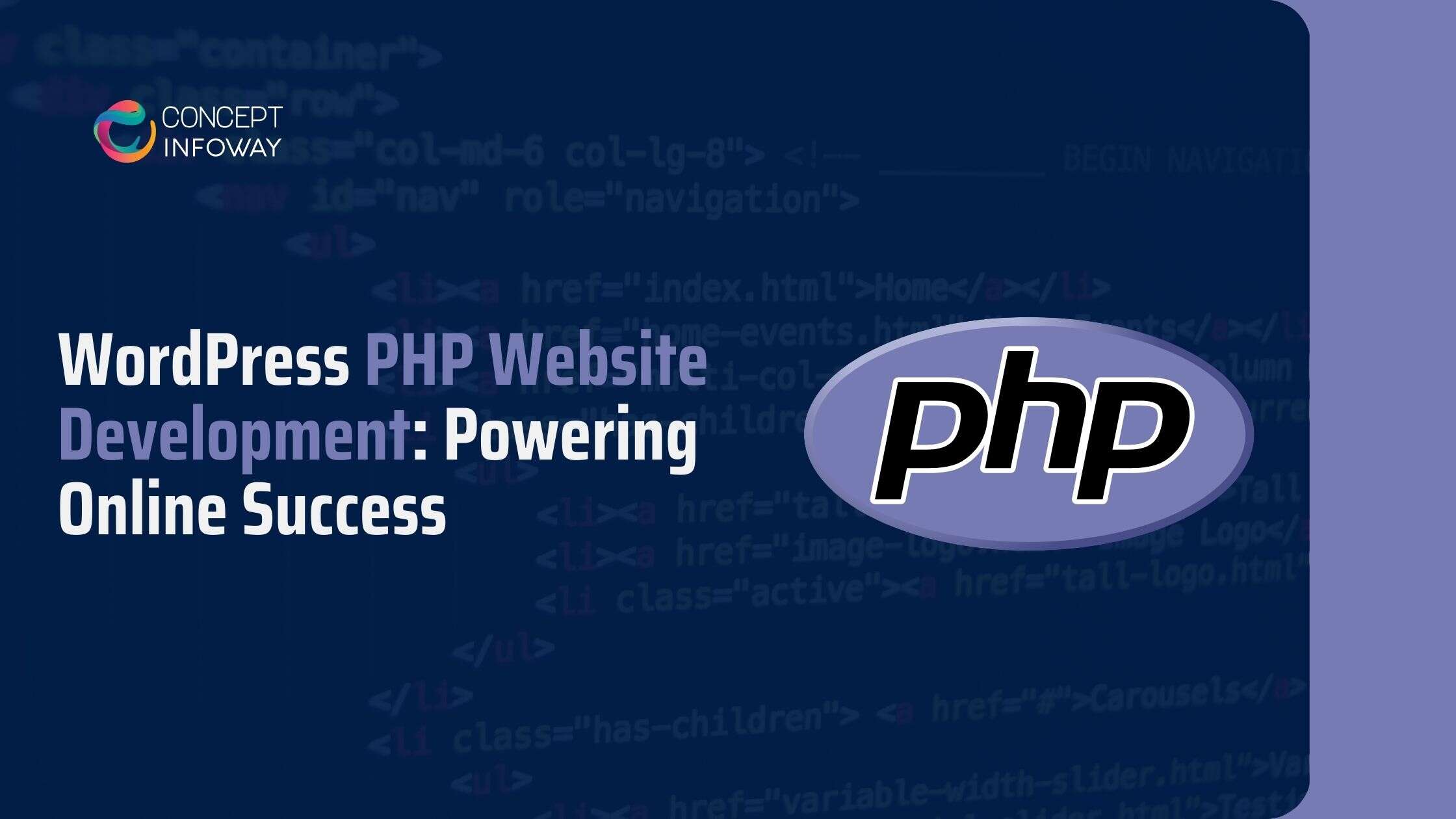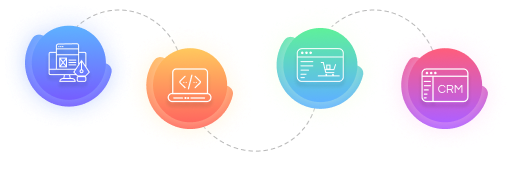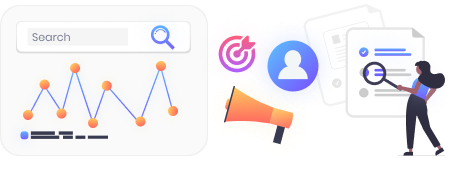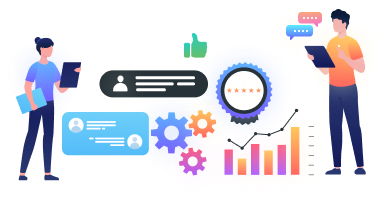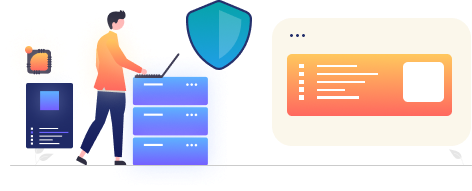
The Future of Software Dev: Key Trends Shaping Business in the Digital Era
The rapid evolution of technology continues to reshape industries, and software dev is at the forefront of this transformation. In 2025, the software development landscape is experiencing significant shifts, driven by advancements in artificial intelligence, cloud computing, and other cutting-edge technologies. These trends are not only influencing how software is built but also how businesses operate in the digital age. As software dev evolves, organizations must adapt to these changes to stay competitive.
The Rise of AI-Driven Development
Artificial Intelligence (AI) and Machine Learning (ML) are no longer futuristic concepts but are becoming integral to the software dev process. AI-powered tools and techniques are streamlining various aspects of development, from code generation and testing to predictive analytics and user experience optimization.
- AI-Assisted Coding: AI algorithms can analyze codebases, identify patterns, and suggest improvements, significantly reducing development time and enhancing code quality.
- Automated Testing: AI-driven testing frameworks can automate test cases, identify potential issues early in the development cycle, and improve software reliability.
- Predictive Analytics: By analyzing vast amounts of data, AI can predict future trends and user behavior, enabling developers to create more personalized and intuitive software solutions.
Low-Code and No-Code Development Platforms
The rising complexity of software dev has spurred the emergence of low-code and no-code development platforms. These platforms empower citizen developers with minimal coding experience to create applications visually, accelerating the software development process and reducing reliance on traditional developers.
- Rapid Application Development: Low-code and no-code platforms enable businesses to rapidly develop and deploy applications, responding quickly to changing market demands.
- Increased Productivity: By automating repetitive tasks and providing pre-built components, these platforms significantly boost developer productivity.
- Democratization of Software Development: Low-code and no-code platforms make software development accessible to a wider audience, fostering innovation and creativity.
Read Also: Benefits of Outsourcing Software Development to India
Cloud-Native Technologies
Cloud-native technologies, such as microservices, containers, and serverless computing, are revolutionizing the way applications are deployed and scaled. These technologies enable organizations to build highly scalable, resilient, and cost-effective applications that can adapt to changing business needs.
- Microservices Architecture: By breaking down applications into smaller, independent services, microservices architecture promotes agility, scalability, and maintainability.
- Containerization: Containers provide a consistent environment for applications, ensuring seamless deployment and portability across different platforms.
- Serverless Computing: Serverless computing eliminates the need to manage servers, allowing developers to focus on writing code and letting the cloud provider handle infrastructure.
Emergence of Low-Code/No-code Platforms
One of the most significant trends shaping the future of software dev is the rise of low-code and no-code development platforms. These platforms are revolutionizing the way software is built, empowering individuals and businesses to create applications without extensive coding knowledge.
Key Benefits of Low-Code/No-Code Platforms:
- Rapid Development: Low-code/no-code platforms offer a visual development environment, allowing developers to drag and drop components to build applications quickly. This significantly reduces development time and accelerates time-to-market.
- Reduced Development Costs: By eliminating the need for extensive coding, low-code/no-code platforms can significantly reduce development costs. Businesses can allocate resources to other strategic initiatives.
- Increased Accessibility: These platforms make software dev accessible to a wider range of people, including citizen developers. This democratization of development empowers individuals and organizations to innovate and solve problems.
- Enhanced Collaboration: Low-code/no-code platforms foster collaboration between technical and non-technical teams. Business analysts, product managers, and other stakeholders can actively participate in the development process.
Impact on the Software Development Industry:
The emergence of low-code/no-code platforms is reshaping the software dev industry. While these platforms will not entirely replace traditional coding, they are expected to complement it. Skilled developers can focus on complex, strategic projects, while citizen developers can handle simpler applications.
Read Also: Why Custom Software Development with ASP.NET is More Rewarding
Future Implications:
As low-code/no-code platforms continue to evolve, we can expect to see even greater innovation and disruption in the software dev industry. These platforms will play a crucial role in driving digital transformation and enabling businesses to adapt to the rapidly changing technological landscape.
The Influence of Quantum Computing on Software Development
Quantum computing, a revolutionary technology that leverages the principles of quantum mechanics, is poised to reshape the landscape of software dev. While still in its nascent stages, quantum computing has the potential to solve complex problems that are currently intractable for classical computers. This groundbreaking technology will have a profound impact on various aspects of software development.
Quantum Algorithms and Their Impact
Quantum algorithms, such as Shor’s algorithm and Grover’s algorithm, can significantly accelerate certain computational tasks. These algorithms can potentially revolutionize fields like cryptography, materials science, and artificial intelligence. As quantum computers become more powerful, developers will need to adapt their programming techniques and algorithms to harness the power of quantum mechanics.
Quantum Programming Languages and Frameworks
To facilitate the development of quantum software, new programming languages and frameworks are emerging. These tools provide developers with the necessary abstractions and libraries to write quantum programs. As quantum hardware advances, the ecosystem of quantum programming tools will continue to expand.
Challenges and Opportunities
While quantum computing holds immense promise, it also presents significant challenges. The delicate nature of quantum bits (qubits) makes them susceptible to noise and errors. Quantum error correction techniques are being developed to mitigate these challenges. Additionally, the development of quantum software requires a specialized skill set. As quantum computing matures, the demand for skilled quantum developers will increase.
The Future of Software Development with Quantum Computing
In the future, quantum computing could fundamentally change the way software is developed and deployed. It may enable the creation of highly efficient and innovative applications that were previously unimaginable. Quantum-powered AI, for example, could revolutionize fields like drug discovery, financial modeling, and climate science.
Hire Software Dev?
Contact Us Today!The Rise of Cybersecurity
As the digital landscape becomes increasingly complex, cybersecurity has emerged as a critical concern for software development organizations. Cyberattacks are becoming more sophisticated and frequent, targeting businesses of all sizes. To safeguard sensitive data and maintain system integrity, software development teams must prioritize cybersecurity at every stage of the development lifecycle.
Key Cybersecurity Challenges in Software Development
- Vulnerabilities and Exploits: Software vulnerabilities, such as bugs and security flaws, can be exploited by malicious actors to gain unauthorized access to systems and data.
- Data Breaches: Data breaches can lead to significant financial losses, reputational damage, and legal liabilities.
- Phishing Attacks: Phishing attacks are designed to deceive users into revealing sensitive information, such as passwords and credit card details.
- Ransomware Attacks: Ransomware attacks encrypt systems and data, demanding payment for decryption.
Best Practices for Secure Software Development
To mitigate cybersecurity risks, software development teams should adopt the following best practices:
- Secure Coding Practices: Adhere to secure coding principles to write code that is resistant to vulnerabilities.
- Regular Security Testing: Conduct regular security testing, including vulnerability scanning, penetration testing, and code reviews.
- Strong Authentication and Authorization: Implement strong authentication mechanisms, such as multi-factor authentication, to protect access to systems and data.
- Data Privacy and Protection: Ensure compliance with data privacy regulations and implement measures to protect sensitive data.
- Incident Response Planning: Develop a robust incident response plan to effectively respond to security breaches.
- Staying Updated: Stay informed about the latest cybersecurity threats and vulnerabilities.
The Role of Cybersecurity in the Future of Software Development
As the digital landscape continues to evolve, cybersecurity will remain a top priority for software development organizations. Emerging technologies, such as artificial intelligence and the Internet of Things, will introduce new security challenges. To address these challenges, software development teams must adopt a proactive approach to cybersecurity and invest in advanced security solutions.
Edge Computing Goes Mainstream
Edge computing is emerging as a critical trend in software dev, especially with the proliferation of IoT devices and the increasing demand for real-time data processing. By bringing computation and data storage closer to the data source, edge computing reduces latency, improves response times, and enhances overall system performance.
Key Benefits of Edge Computing:
Reduced Latency: By processing data at the edge, edge computing significantly reduces latency, enabling real-time applications and improving user experience.
Enhanced Performance: Offloading processing tasks from the cloud to edge devices can improve overall system performance and scalability.
Improved Reliability: Edge computing can enhance system reliability by reducing dependency on centralized cloud infrastructure.
Data Privacy and Security: By processing data locally, edge computing can help protect sensitive information and comply with data privacy regulations.
Impact on Software Development:
Edge computing is driving the development of new software architectures and applications. Developers need to consider factors like resource constraints, power consumption, and security when designing edge applications. Additionally, edge computing is fostering the growth of new programming models and frameworks that are optimized for distributed and decentralized computing.
The Future of Software Development with Edge Computing
As edge computing continues to gain traction, we can expect to see a wide range of innovative applications emerge. From autonomous vehicles to smart cities, edge computing will be a key enabler of these technologies. Developers will need to acquire new skills and adapt to the evolving landscape of software dev to fully leverage the potential of edge computing.
Cloud-Native Development as a Standard
Cloud-native development has emerged as a dominant paradigm in software dev, transforming the way applications are built, deployed, and managed. This approach leverages the power of cloud computing to create scalable, resilient, and efficient applications.
Key Principles of Cloud-Native Development:
- Microservices Architecture: Breaking down applications into smaller, independent services allows for greater flexibility, scalability, and maintainability.
- Containers: Technologies like Docker that utilize containerization facilitate the bundling of applications and their associated dependencies into portable units, which enhances the efficiency of deployment and management.
- Continuous Delivery and Deployment: Automated processes streamline the software delivery pipeline, accelerating development cycles and reducing the risk of errors.
- Infrastructure as Code (IaC): Treating infrastructure as code allows for automated provisioning, configuration, and management, ensuring consistency and reproducibility.
Benefits of Cloud-Native Development:
- Scalability: Cloud-native applications can easily scale up or down to meet changing demands, ensuring optimal performance and resource utilization.
- Resiliency: By distributing components across multiple servers and regions, cloud-native applications can withstand failures and disruptions.
- Faster Time-to-Market: Automated processes and streamlined workflows accelerate the development and deployment of applications.
- Cost-Efficiency: Cloud-native applications can be optimized to reduce costs by leveraging pay-as-you-go pricing models and efficient resource allocation.
The Future of Software Development with Cloud-Native Approaches
As cloud-native development continues to evolve, we can expect to see even greater innovation and disruption in the software dev industry. Emerging technologies like serverless computing, edge computing, and artificial intelligence will further enhance the capabilities of cloud-native applications.
Why Choose Concept Infoway for Your Software Development Needs?
Concept Infoway, a leading software development agency, is committed to delivering cutting-edge solutions that leverage the power of cloud-native development. Our experienced team of developers can help you design, develop, and deploy scalable, resilient, and efficient cloud-native applications.
By partnering with Concept Infoway, a software development firm with a proven track record, you can:
Accelerate Digital Transformation
- Leverage cloud-native technologies to drive innovation and business growth.
- Rapidly develop and deploy new software products and services.
- Stay ahead of the competition by embracing emerging trends in software dev.
Reduce Costs and Improve Efficiency
- Optimize your software development processes to reduce costs and improve time-to-market.
- Utilize cost-effective cloud-based infrastructure to minimize operational expenses.
- Implement automated testing and deployment pipelines to streamline software dev workflows.
Enhance Security and Compliance
- Protect your software applications and data with robust security measures.
- Adhere to industry standards and regulations to ensure compliance.
- Implement proactive security practices to mitigate risks and vulnerabilities.
Receive Expert Guidance
- Benefit from our team’s deep expertise in software development and cloud-native technologies.
- Receive strategic guidance on technology selection and architecture design.
- Get support throughout the entire software development lifecycle, from ideation to deployment and maintenance.
Our Commitment to Excellence
At Concept Infoway, we are passionate about delivering exceptional software development services. We prioritize:
- Client Satisfaction: We work closely with our clients to understand their unique needs and deliver tailored solutions.
- Quality Assurance: We adhere to rigorous quality standards and testing methodologies to ensure the reliability and performance of our software.
- Innovation: We embrace emerging technologies and innovative approaches to drive software dev forward.
- Ethical Practices: We conduct business ethically and responsibly, upholding the highest standards of integrity.
Contact Us Today
To learn more about how Concept Infoway can help you achieve your software development goals, please contact us today. Our team is ready to discuss your project requirements and provide a customized solution.
Conclusion
The future of software dev is a dynamic landscape shaped by rapid technological advancements and evolving business needs. As we’ve explored, key trends such as AI and ML, low-code/no-code development, cloud-native technologies, and quantum computing are set to redefine the way software is conceived, developed, and deployed.
To thrive in this ever-evolving landscape, software development organizations must embrace these trends and adapt their strategies accordingly. By investing in skilled talent, adopting innovative technologies, and fostering a culture of continuous learning, businesses can position themselves for success in the digital age.
As software dev continues to evolve, it’s crucial to maintain a focus on ethical considerations and responsible innovation. Developers must strive to create software that is inclusive, accessible, and beneficial to society.
By staying informed about the latest trends and emerging technologies, businesses can harness the power of software dev to drive innovation, improve efficiency, and achieve sustainable growth.
To leverage these trends and drive digital transformation, consider partnering with a leading software development agency like Concept Infoway. We specialize in delivering cutting-edge software development solutions that address your unique business needs. Our team of experts can help you navigate the complexities of modern software dev and build innovative applications that drive growth and success.
Contact us today to discuss your software development project and explore how we can help you achieve your goals.
Frequently Asked Questions – FAQs
What does a software dev do?
Software dev is a skilled professional who designs, develops, tests, and maintains software applications. Their primary responsibilities include:
• Writing code: Using programming languages to create software applications.
• Debugging: Identifying and fixing errors in code.
• Testing: Ensuring the software functions as intended.
• Deployment: Releasing software to production environments.
• Maintenance: Updating and improving software over time.
Is software dev a stressful job?
Like any job, software development can be stressful at times. Factors such as tight deadlines, complex projects, and the pressure to deliver high-quality code can contribute to stress. However, many developers find the work rewarding and challenging.
Is it hard to get a job as a software dev?
The difficulty of getting a job as a software dev can vary depending on factors such as experience, skills, and location. However, there is a high demand for skilled software developers, especially in areas like web development, mobile app development, and data science. Increase your chances of landing a job, consider acquiring strong programming skills, building a solid portfolio, and networking with other professionals in the industry.
What do you mean by software dev?
Software dev, or software development, refers to the process of designing, coding, testing, and maintaining software applications. It includes web, mobile, desktop, and cloud-based solutions. At Concept Infoway, our software dev services empower businesses with tailor-made applications that improve operations, user engagement, and digital growth.
Do you need a degree to be a software developer?
While a degree can help, it’s not mandatory to become a software developer. Many successful developers are self-taught or have completed coding bootcamps. For businesses, hiring from Concept Infoway ensures you get experienced software dev professionals with proven skills, regardless of academic background.
What skills are required to be a software developer?
Essential skills include problem-solving, proficiency in programming languages (like Java, Python, PHP), version control (Git), and knowledge of databases and frameworks. Concept Infoway’s software dev team brings a wide range of these technical and soft skills to deliver high-quality, scalable digital solutions.
Is software developer hard?
Software development can be challenging, especially when dealing with complex systems or strict deadlines. However, it becomes manageable with the right expertise and tools. That’s why companies choose Concept Infoway’s software dev services—to ensure projects are executed smoothly by experienced professionals using industry best practices.

Finding Laravel Programmers: Top Skills & Where to Look
